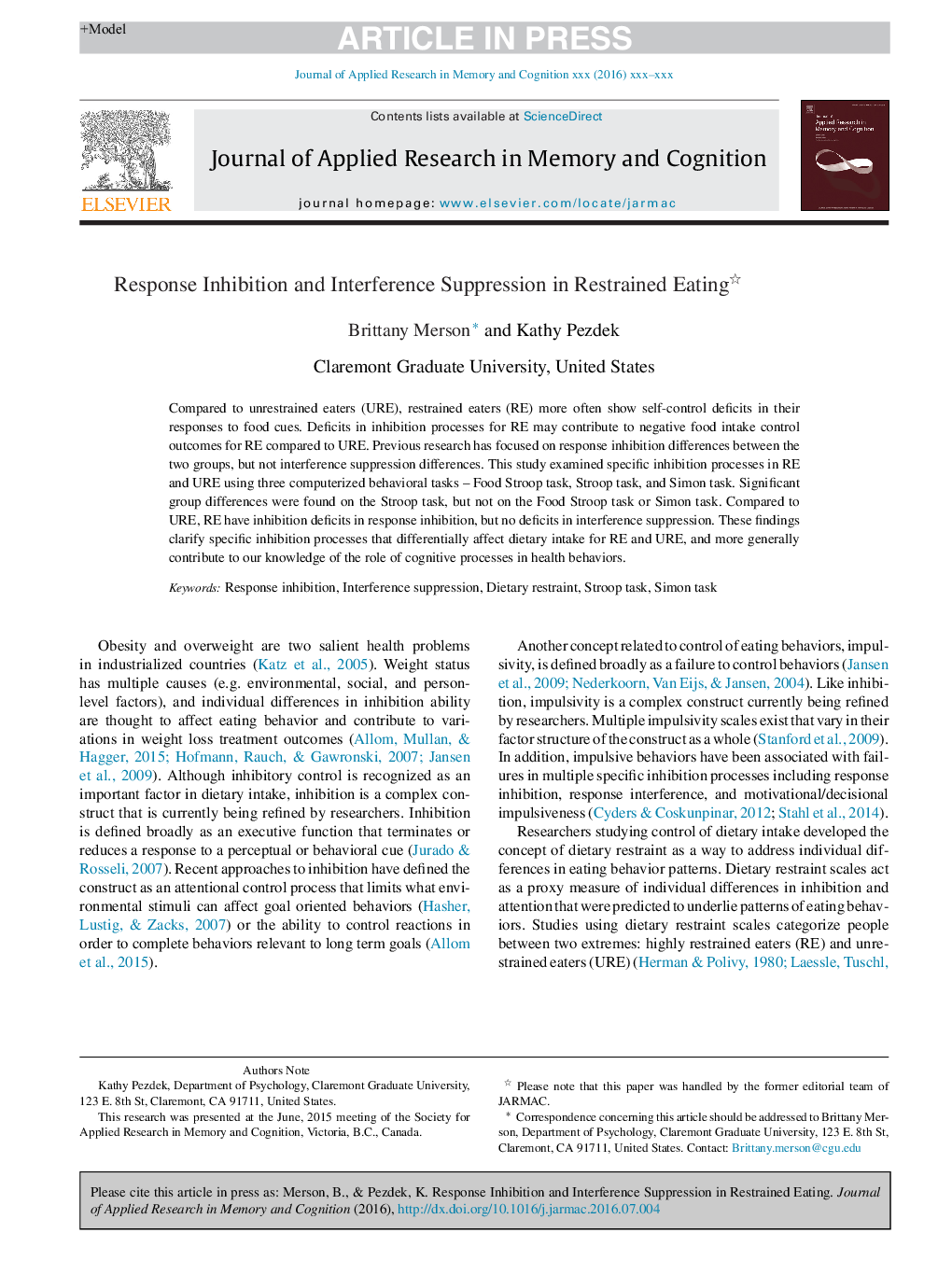| Article ID | Journal | Published Year | Pages | File Type |
|---|---|---|---|---|
| 5034058 | Journal of Applied Research in Memory and Cognition | 2016 | 7 Pages |
Abstract
Compared to unrestrained eaters (URE), restrained eaters (RE) more often show self-control deficits in their responses to food cues. Deficits in inhibition processes for RE may contribute to negative food intake control outcomes for RE compared to URE. Previous research has focused on response inhibition differences between the two groups, but not interference suppression differences. This study examined specific inhibition processes in RE and URE using three computerized behavioral tasks - Food Stroop task, Stroop task, and Simon task. Significant group differences were found on the Stroop task, but not on the Food Stroop task or Simon task. Compared to URE, RE have inhibition deficits in response inhibition, but no deficits in interference suppression. These findings clarify specific inhibition processes that differentially affect dietary intake for RE and URE, and more generally contribute to our knowledge of the role of cognitive processes in health behaviors.
Related Topics
Social Sciences and Humanities
Psychology
Applied Psychology
Authors
Brittany Merson, Kathy Pezdek,
